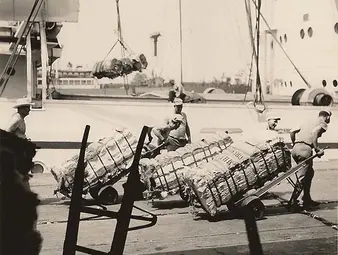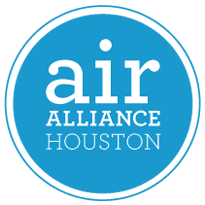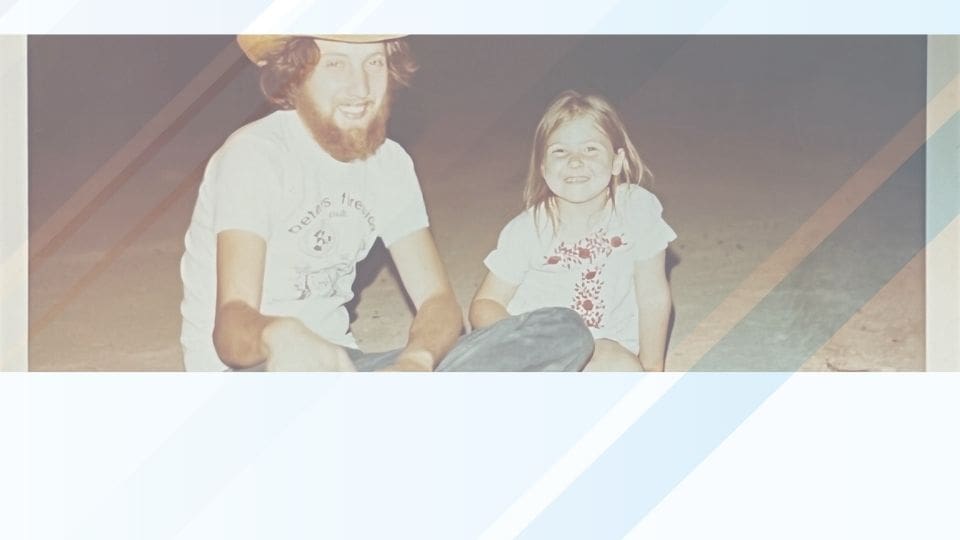BY: AUBREY CALLAWAY
December 9, 2021
Growing up in and around Pasadena, Texas, Jennifer Hadayia witnessed the ways that your environment and your job can collide. Both her father and grandfather worked for Port Houston, and both had poor health their whole life.
They both died young.
When she started school, she was bused to River Oaks, then Montrose. It was an hour and a half both ways. She was the first to be picked up in the mornings and the last to be dropped off in the evenings. “I can hardly think of two more diverse places,” she says. What she was seeing then gave her her first sense that “there was something happening based on where people were living.”
Here, Hadayia, who was introduced as the new executive director of Air Alliance Houston in late November, draws a line from her early experiences to a career in public health and the current opportunities for change through advocacy emerging from the very communities she grew up in. This conversation has been edited and condensed for clarity.
Aubrey Calaway: What was it like to grow up along the Ship Channel? Could you describe it for someone who didn’t live there?
Jen Hadayia: As a child, I thought all of the facilities were beautiful. They were always lit up. It was like Christmas all year. The flares were fascinating — you know, there’s fire in the air! The Ship Channel bridge was fun to drive over. I had no idea what it all was doing, but as a child I thought it was oddly beautiful, and that’s a very strange thing.
My second sensory experience is the smell. I didn’t necessarily know when or why, but sometimes when we would drive out to visit family, or the few times I would go with my father to work, it would just smell odd.
I know people have mentioned this before, but it is absolutely true. We would call it “Stinkadena,” rather than Pasadena. People thought of it that way. It seemed like the rest of the city looked down on Pasadena. Even though we said it, it was hurtful to hear other people say it. There was the sense my family just wasn’t as good as other people who didn’t work at the port or weren’t living in these areas.
Let me back up. My grandfather originally was from western Europe. He left Denmark after World War II. He was a stevedore and worked on and around boats his whole life. So, when he immigrated here, to Houston, he immediately went to work on the Ship Channel. His son, my father, had me at 17, graduated from Milby High. He was very proud, but he didn’t have a whole lot of opportunities.
He was physically strong, though, and my grandfather got him a job. He got my aunt a job there at one point, too, and then my uncle and even some of my cousins. There was the sense of a generational relationship to the port and the work. It’s a place where somebody like my father could get a job that could support his family. He was a steamship clerk and checker. He walked up and down the docks and counted and inventoried the containers coming off the ships. He was on his feet all day, in the sun all day. I remember he was always very tan. He wore his cowboy boots every day. Every night, I remember, he would wait for a phone call to say, “We need you to work tomorrow, this is the dock you report to.” And if you didn’t get that phone call, then you didn’t work. And he knew he wouldn’t be earning money. So it was a really big deal to get that phone call every night.
He had debilitating asthma his entire life. He became very ill as a child growing up in Pasadena. I didn’t know it then, but it’s obvious now that having a chronic respiratory condition and working at the Ship Channel, breathing in everything he breathed in every day, wasn’t the best for his health. He would have asthma attacks. He always carried in his pocket a little over-the-counter inhaler. He wouldn’t go anywhere without it.
My grandfather had poor health his entire life. He had throat cancer and, ultimately, ended up dying of a heart attack. My father actually died quite young, at 39. I knew it couldn’t have been easy on their bodies. They just seemed creaky, and in a lot of pain, and just not as vigorous as they should have been given how young they were. If I had to sum up all the things I heard then or what I’ve since talked to other family members about, it’s that there’s a tension for them. Somebody like my father who didn’t have a college degree could work for the port and earn a good living. He could be in the union and have health care and a savings account with the credit union. But it was very grueling work. He was exhausted at the end of the day when he came home. It required a sacrifice of your body. With the lens of time and experience, I started to put some of these pieces together and wonder if there were connections that were related to where they went to work every day.
AC: Did you ever feel concerned for your own health?
JH: I don’t think I was aware of it. I think I was more aware of the fact that people in my family were having health issues, or my father would have an asthma attack. There always seemed to be somebody in the family who was struggling with some kind of issue. Even as I became an adult and had moved away, I would check in with my grandmother — she’s since passed away as well — and she would always run down for me the list of everybody and their health issues. I don’t know why. But I think it’s because no matter what, everybody had a health problem. I think about that now. It’s kind of a funny focus. Your granddaughter is calling home to say hi, and what I learned is everybody’s health problems.
AC: With all this knowledge, what do you worry about most when it comes to Ship Channel communities?
JH: The port, as I described, even for my own family, can be a multigenerational opportunity for people to have purposeful, well-compensated work and that sense of community, but it can also have health outcomes that span generations.
When work takes place where you live, you’re looking at entire families being subjected to the hazards. What concerns me most is that impact — and the fact that they may not even be aware that it’s happening. Because there is one thing about the smell along the Ship Channel — if you’re in it long enough, you don’t notice it. If you wake up to it, and you’re there for a long time, maybe it just becomes what seems normal. It’s what my father and my grandfather did. So, that’s what we do, too.
I keep saying the word “tension,” because I can’t think of any other way to describe it. There’s a great sense of pride in the work, and I don’t want to discount that. But, at the same time, people may not know the risks.

Even when I was young, I realized not everybody had access to health in the same way. I could see it in my father’s family, who were primarily manual laborers, coupled with a recognition that I didn’t see every family struggling with this.
I didn’t necessarily know it early on in my career, I just knew I wanted to do something for the public good. And health was very motivating for me. Here I am, 20 years later. I’ve worked almost solely for governmental public health departments, in different states in different counties, including here in Harris County, with the lens of creating conditions where all people could reach their full potential. It took a little while for me to come back home to Houston. Now, I’m deeply proud that I can do this work in the place that developed me. And back in the place where I have family.
AC: Are you hopeful things will be able to change?
JH: It was about eight years ago that I was first introduced to what I consider to be “upstream” causes of health inequity. Public health as a field had been looking at individual behavior as the primary driver of health — what you did every day — but then we started thinking more broadly about policies impacting our health. So, for example, I may or may not choose to use tobacco. But if there is a tobacco ordinance in my city, the likelihood I will use it goes down.
But then there was another evolution, and it was to look even further upstream, not only at the impact of health policy on your behaviors, but at the conditions of our society. That’s our air, water and soil and whether or not that supports health. And financial conditions, whether or not people can earn a living wage. Housing, education — conditions that on their surface seem to have nothing to do with health. But there was this sea change in public health where we realized we are never going to address downstream issues if we’re not way further upstream, addressing them at their root.
I remember the day I was introduced to data on the impact of air quality. Everything I had been working on, all the things my own family had been dealing with living where they lived and working where they worked, were related to their air. So, I had this a-ha moment: Assuring the quality of our air can have an impact on all the downstream issues I grew up seeing my family have.
Now, it’s the possibility of change. If we have the political will, and the policy, and the engagement at all levels, we can make our air clean. And then that can help prevent cardiovascular events. It can help prevent asthma. It can help prevent reproductive adverse outcomes. There’s even data suggesting that air quality may be related to dementia. We’re looking at it across a lifespan through all systems of the body.
It’s the through-line of what I experienced as a child — the sense something’s not right here. It took all this time to realize there’s a connection. And now I get the opportunity to work on strengthening that connection for others and making it better for my family, who still lives here, and for so many other generations to come.
If we don’t address health and justice, then we won’t see the outcomes we need to see. They have to be addressed together, because they compound together. I’m hopeful that so many have the view that, if we are going to address them, and we’re going to keep our communities healthy, we have to do it in a way that elevates their lived experience that is just to them and their neighborhoods, and to our environment, and corrects the deliberate policies and practices that have systematically disenfranchised them. You can’t just pull one issue out and work on it, you have to work on all of them together.
Calaway is a freelance writer and audio producer. You can find more of her environmental reporting at aubreycalaway.com.
This article was originally published by One Breath Partnership.

